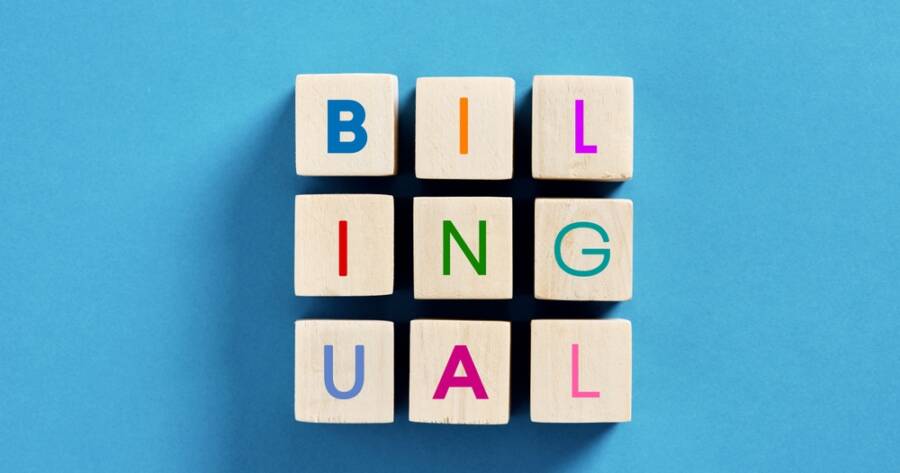Learning a second language opens doors to richer communication, cultural understanding, and personal growth. It strengthens the mind by enhancing memory, problem-solving, and multitasking skills, while also fostering empathy through exposure to new perspectives. Beyond cognitive and emotional benefits, bilingualism can improve career opportunities, travel experiences, and confidence, allowing individuals to connect more deeply with the world and navigate it with greater awareness and appreciation.
The Cognitive Power of Bilingualism
Learning a second language exercises the brain in unique and powerful ways. It engages memory, focus, and problem-solving skills, strengthening neural connections much like a mental workout. Studies show that bilingual individuals often have improved cognitive flexibility and can switch between tasks more efficiently. This constant brain stimulation also helps delay cognitive decline and reduces the risk of conditions like Alzheimer’s and dementia.
Beyond memory and mental sharpness, bilingualism enhances creativity and adaptability. By navigating between languages, learners develop better decision-making and abstract thinking skills. The mental agility gained through language study can improve performance in academics, work, and daily life—proving that learning a second language is as beneficial for the mind as physical exercise is for the body.
Improved Communication and Empathy
Language learning is far more than memorizing vocabulary—it’s a bridge to understanding other people’s perspectives. When learning a new language, individuals are exposed to different communication styles, customs, and ways of thinking. This exposure fosters empathy, as learners begin to see the world through diverse cultural lenses. As a result, they become better listeners, more patient conversationalists, and more open-minded individuals.
These improved communication skills extend into personal and professional life. Bilinguals often excel in collaboration and cross-cultural interactions, which are highly valued in today’s globalized world. Whether in the workplace or social settings, being able to connect across cultures enhances relationships and encourages inclusivity and mutual respect.
Enhanced Career and Academic Opportunities
Fluency in more than one language opens up a wealth of career opportunities. Many global companies seek bilingual professionals to manage international clients, negotiate cross-border deals, or engage with diverse audiences. This skill often leads to higher employability and, in many cases, better salaries. Employers view bilingual candidates as adaptable, resourceful, and capable of thriving in multicultural environments.
Academically, learning another language can boost overall performance. Studies show that bilingual students often excel in core subjects like math and science due to their improved concentration and problem-solving skills. In a competitive job market, bilingualism not only broadens career horizons but also demonstrates dedication, curiosity, and global awareness—traits that set individuals apart.
Strengthened Memory and Concentration
One of the most well-documented benefits of learning a second language is its positive impact on memory and focus. Memorizing vocabulary, grammar structures, and pronunciation sharpens recall abilities and strengthens the brain’s working memory. Bilingual individuals often find it easier to remember names, directions, and sequences, as language study reinforces long-term memory storage.
Additionally, switching between languages enhances concentration and mental discipline. Language learners become adept at filtering out distractions, maintaining focus, and managing multiple cognitive tasks at once. This skill translates into everyday productivity, helping learners stay organized and attentive in both academic and professional environments.
Cultural Awareness and Global Connection
Learning another language naturally deepens appreciation for global cultures. From idioms and humor to traditions and cuisine, understanding a language means understanding the people behind it. This awareness encourages respect for cultural diversity and helps bridge divides in an increasingly interconnected world.
Travel experiences also become more meaningful with language knowledge. Communicating with locals, understanding signs, and participating in authentic cultural exchanges transform trips into immersive adventures. Speaking even a few phrases can open doors to friendships, unique experiences, and a genuine sense of belonging abroad.
Boosted Confidence and Self-Esteem
Mastering a new language is an empowering achievement. The process builds resilience, as learners navigate mistakes and challenges with persistence. Over time, successfully holding a conversation or understanding a foreign film brings a deep sense of accomplishment that enhances self-esteem.
Moreover, speaking another language gives individuals a stronger sense of independence and curiosity about the world. It inspires confidence in social settings, travel, and professional environments alike. This newfound assurance extends beyond language—it often encourages learners to embrace other personal and professional challenges with courage and enthusiasm.
Why You Should Start Learning a New Language Today
Learning a second language is an investment in both personal and intellectual growth. It sharpens the mind, strengthens communication skills, and opens the door to meaningful cross-cultural connections.
The ability to understand and interact in another language enriches daily life—transforming how we think, work, and relate to others. Whether for travel, career advancement, or personal fulfillment, the rewards of bilingualism extend far beyond words, offering lifelong benefits for the heart and mind alike.
